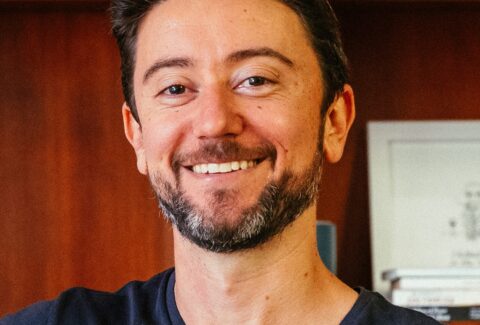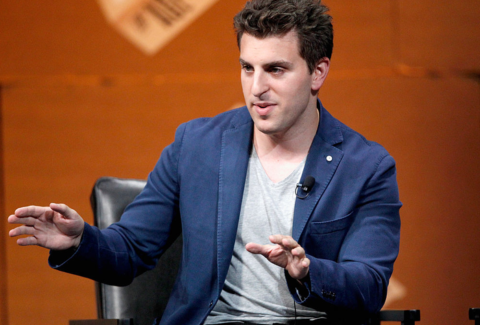#SOTD 19: Persuading a hard-nosed VC

#SOTD 19: Persuading a hard-nosed VC
This week, I’ve been watching a new series on Disney Hotstar called ‘The Dropout’. The series narrates the gripping story of Elizabeth Holmes (the founder of Theranos) – who went from being the toast of Silicon Valley and corporate America to being convicted for defrauding investors.
Holmes had founded Theranos to build a revolutionary new product to upend the world of lab testing. Currently most tests require a vial of blood and take a lot of time (and money) for the reports to come. The Theranos cartridge was supposed to work with just drop of blood (taken using a pin prick) which would be inserted into a printer-sized device which would spew out the result in minutes.

Founded in 2003 by Holmes (she was just 19 then), Theranos raised more than $700M from several high-profile investors, resulting in a $10 billion valuation at its peak in 2013-14.
Holmes was the toast of the media and also political leaders. The then VP Joe Biden had toured their facility and praised what he saw. Former US Secretary of State, George Schultz was on their board.
Then things started to unravel. In 2015, some professors and a Wall Street Journal investigative reporter started questioning the efficacy of Theranos’ tests… Investigations and lawsuits followed. Eventually the company was dissolved in 2018 and Holmes was charged with fraud by the SEC (she was convicted in January this year).
What is most surprising in this story is – without having a working product, how did the young Holmes manage to raise millions of dollars from savvy investors at astronomical valuations… and kept the party going for 12 years?!
In the OTT series, they show us some of the pivotal moments when Holmes’ legendary persuasion skills come to fore.
Let me be clear: It is NOT cool to seek inspiration from fraudsters… But on the other hand, it is important to know the persuasion tools that are being used so that:
- We can use it for the right causes (I know it is a wholly different debate as to what is the “right cause” – leaving that philosophical question aside for now!)
- We can know when others are applying it to us and not get overly swayed!
Anyway, so here’s a pivotal scene from Episode 2 of the first season.
The context: So these are still early days for the startup. It had still not been able to build a working prototype… and the money which Holmes had raised from friends and family was about to run out.
She was reaching out to several investors in Silicon Valley, but nothing was working out.
Eventually, she manages to get the interest of a legendary investor called Don Lucas, an old timer, who also happens to wears a cowboy hats at work (it’s an important detail!).
One day Lucas just walks into the Theranos office surprising Holmes and all the employees.
Even as Holmes is nervously walking Lucas through the corridors in the office, her engineers are desperately trying to make the prototype ready.
When they finally reach the lab, Lucas demands to see a demo. Holmes looks at the engineers who nervously shake their head indicating it is not ready.
Holmes confidently says: “You know what Don, we are not ready to show the prototype yet”
Lucas gets the picture and says: “I go by my gut on these sorts of things” and starts to walk off.
Everyone’s shoulders droop. Sure, they have had VC rejections, but not so public, not in their own lab!
Even as Lucas is almost at the door, Holmes stops him.
She goes: “Don, the blood-testing industry is run by two companies. Quest and Labcorp. And they are dinosaurs. The tech is ancient. These machines that are currently in use, are archaic. These billion dollar companies expect us to let them stick us with needles and then pay for their expensive tests? No, this is America and we are cowboys right?”
Lucas, in his cowboy hat, lets out a wry smile.
Holmes continues: “You were in the army and thank you for your service. Could you imagine a portable blood testing device on the battlefield? The American lives that could be saved? Don, if all you wanted to do was make money, you’d have been on Wall Street, not in Palo Alto. When Larry Ellison came to you with his vision for how Oracle could organise data, you didn’t tell him it was crazy. You said, ‘How much do you need?’ If you believe in us, everyone else will.”
Lucas nods with the hint of a smile and says: “Whatever you’re doing tomorrow, just cancel it. I want you to meet Larry Ellison”. And he walks away.
The room erupts.
Disclaimer: I don’t know whether this incident happened in real life – and if so, how much creative liberty did the show’s writers take when crafting this scene.
Having said that, it is a great case study in persuasion.
Let’s look at some of the storytelling and persuasion techniques that have been used in it
Statement: “Don, the blood-testing industry is run by two companies. Quest and Labcorp. And they are dinosaurs. The tech is ancient. These machines that are currently in use, are archaic.”
Technique: Holmes is setting context using the power of norm-variance here. She is contrasting the existing players (old, archaic) and her new tech (revolutionary, modern).
Statement: “These billion dollar companies expect us to let them stick us with needles and then pay for their expensive tests?”
Technique: This appeals to emotion (pathos) – specifically anger. Jonah Berger (author of the book Contagious) has talked about the power of anger to make us want to act.
Statement: “No, this is America and we are cowboys right? You were in the army and thank you for your service.”
Technique: Both these statements appeal to Lucas ethos and sense of identity. Our actions are driven by our beliefs. Our beliefs are driven by our identity.
Statement: “Could you imagine a portable blood testing device on the battlefield? The American lives that could be saved?”
Technique: This also appeals to emotion – saving lives and patriotism.
Statement: “Don, if all you wanted to do was make money, you’d have been on Wall Street, not in Palo Alto.”
Technique: This again appeals to Lucas’s sense of identity as someone who veers away from the crowd. The unsaid message: investing in Theranos would be consistent with that identity.
Statement: “When Larry Ellison came to you with his vision for how Oracle could organise data, you didn’t tell him it was crazy. You said, ‘How much do you need?’ If you believe in us, everyone else will.”
Technique: Using an analogy of a wildly successful entrepreneur whose corporation also happens to be one of Lucas’s successful investments. This statement is emotive – it reminds Lucas of the pride and joy of his successful investment. Plus, it also equates Theranos with Oracle.
Statement: “If you believe in us, everyone else will.”
Technique: This is plain and simple appealing to Lucas’s sense of importance in the Valley as an influential investor. By itself, it may seem like flattery. But coming at the end of this monologue, it packs a punch.
—-
No one can condone the actions Elizabeth Holmes took as an entrepreneur. But as curious learners, we should not let that stop us from picking up the right lessons from her life and work.

#SOTD 19






